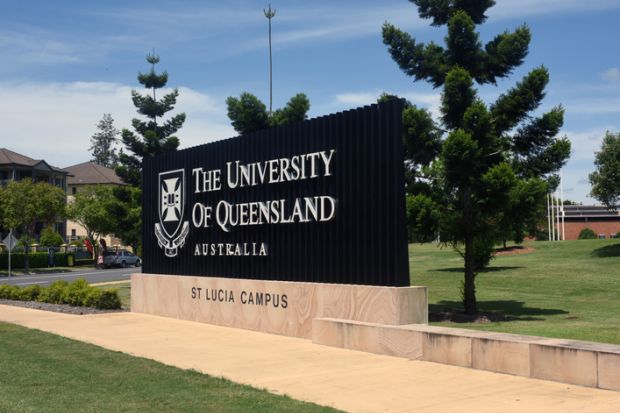Conflicts in Hong Kong have played out on a Brisbane campus, where rival groups of students have clashed over the Chinese territory’s autonomy.
Security and police intervened after a largely peaceful protest, which was staged during market day celebrations in the University of Queensland’s Great Court, became heated.
Punches were thrown and signs criticising China were torn up when pro-Beijing students confronted domestic and Hong Kong students protesting against the territory’s proposed extradition law and China’s treatment of ethnic Uighurs in the country’s west.
Footage of the clashes show local students chanting “free Hong Kong” and remonstrating with their Chinese opponents, saying “go home” and “this is a democracy”.
The university said it had requested police support over “safety concerns resulting from a student-initiated protest” on campus. “On the advice of police, protesters were requested to move on,” it said in a statement.
“One of the roles of universities is to enable open, respectful and lawful free speech, including debate about ideas we may not all support or agree with,” the statement continued. “The university expects staff and students to express their views in a lawful and respectful manner, and in accordance with the policies and values of the university. The safety of all students is paramount.”
The episode is likely to add to concerns that pro-government activism among the 110,000-plus Chinese students in Australia is suppressing free speech on campus. Recent years have seen a spate of Chinese student protests over perceived insults at universities, such as references to Taiwan and Hong Kong as “countries” and maps of China that exclude territory it claims.
Academics have also drawn ire with comments linking China with cheating and drunken officials. In some cases, academics have been suspended or forced to apologise.
China critics say such incidents reflect the economic leverage Beijing has over Australian universities, some of which attract one-quarter of their revenue from Chinese tuition fees, and the propensity of Chinese government agencies to mobilise students to demonstrate on their behalf.
Others argue that such incidents have been exaggerated and that only a handful have taken place.
Register to continue
Why register?
- Registration is free and only takes a moment
- Once registered, you can read 3 articles a month
- Sign up for our newsletter
Subscribe
Or subscribe for unlimited access to:
- Unlimited access to news, views, insights & reviews
- Digital editions
- Digital access to THE’s university and college rankings analysis
Already registered or a current subscriber? Login










